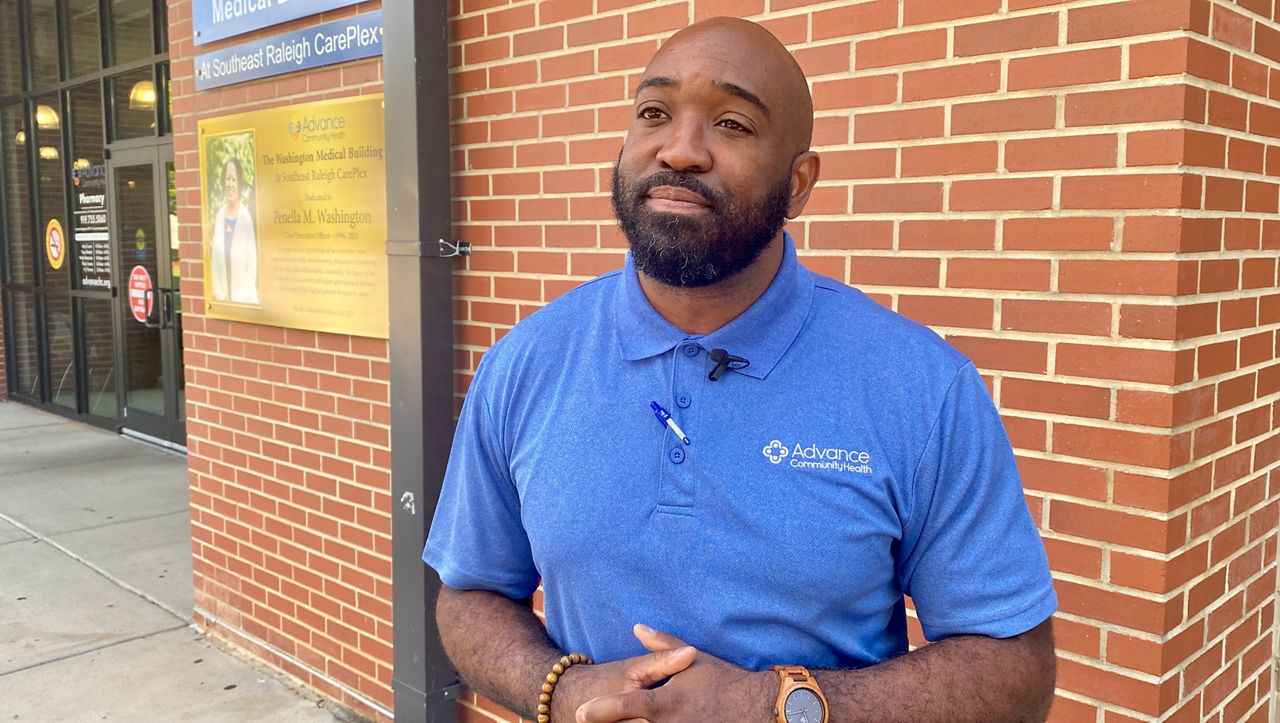More than 600,000 people will get new health care coverage now that North Carolina is expanding Medicaid, state officials said. The program will begin Dec. 1.
“Finally expanding Medicaid in North Carolina is a monumental achievement that will extend health insurance to people who need it,” Gov. Roy Cooper said in a news conference Monday.
“This means better health care, including those with mental health and substance use disorders, hope for rural hospitals struggling to stay open and billions of dollars for our economy. This action is long overdue, and we aren’t wasting a moment in beginning enrollment in North Carolina,” the governor said.
Health care providers, patients and state agencies are preparing for what’s to come.
The expanded federal program will give health coverage to people making less than 138% of the federal poverty level. That includes individuals who make $20,000 or less a year or a family of four that has a combined income of $41,000 or less.

“Not having the ability to walk in and having the consideration of how you pay for care, that is one of the biggest barriers,” said Scot McCray, CEO of Advance Community Health.
Advance Community Health is a Federally Qualified Health Center, which means the clinic in Raleigh accepts everyone who walks through their doors, regardless of their ability to pay.
Medicaid expansion will help clinics like McCray's and rural hospitals make ends meet and keep the doors open, state officials say. Those clinics and hospitals will now be able to bill the federal program for treating more patients who couldn't afford care before.
“Medicaid Expansion is the most significant investment in the health of North Carolina in decades and represents billions of dollars of investment each year that helps keep clinics, providers and hospital doors open,” said Kody Kinsley, secretary for the North Carolina Department of Health and Human Services.
McCray said they have already been working to help people understand what Medicaid expansion could mean and how to prepare to get the federal health insurance coverage.
He said to teach people, you must first reach people at wherever point they are at in life, which includes getting out into the community and understanding their health needs as much as their insurance to cover it.
“Our cadence doesn’t change because we have always been at the forefront of making sure that every patient that comes in as an unestablished patient that doesn’t have insurance, or has to pay out of pocket or has to pay some nominal fee, understands what they could be eligible for,” McCray said.
#NCHealth #AffectingYourState #MedicaidExpansion I spoke with the CEO of Advance Community Health, Scot McCray, about the education of Medicaid expansion for their patients. Below is a GFX of who qualifies. The full launch begins Dec. 1. @SpecNews1RDU pic.twitter.com/YKUVdTnBpI
— Patrick Karl Thomas (@PatThomasNews) September 25, 2023
The ACH CEO said they serve nearly 10,000 uninsured patients–many of whom were coming to them before, during, and after the pandemic.
McCray said he is excited to see how they can help people. “We’ve already been counting our numbers for the past 18 months,” McCray said.
“COVID put a lot of the administrative optimism on hold and it was really about the community,” McCray said.
Care management will be a much bigger part of Medicaid services in this state moving forward. The Centers for Medicare and Medicaid Services defines care management as a health care delivery system meant to better oversee cost and quality for patients.
“Let’s be out in way out in front of our communications of the narrative to say this is again how you navigate the system. This is coming, this is what you would be eligible for,” McCray said.
The Kaiser Family Foundation, a nonprofit organization tracking health policy in America, projected 77% of qualifying Medicaid applicants are childless adults. This is a group not traditionally included with Medicaid eligibility.
“We do not take it lightly that people have these health barriers,” McCray said.
Part of knowing who is eligible is by entering the communities ACH serves. That includes using their mobile health unit to provide both screenings and educational health opportunities.
“Every time we go out to an event, not only are we doing health screenings and education around your wellness, but we’re also doing education and health literacy around are you eligible for X product,” McCray said.
With the pool of people who can get Medicaid in North Carolina growing, McCray said community partners like them to guide those who need care the most.
“That’s what we are most excited about for our families,” he said.



